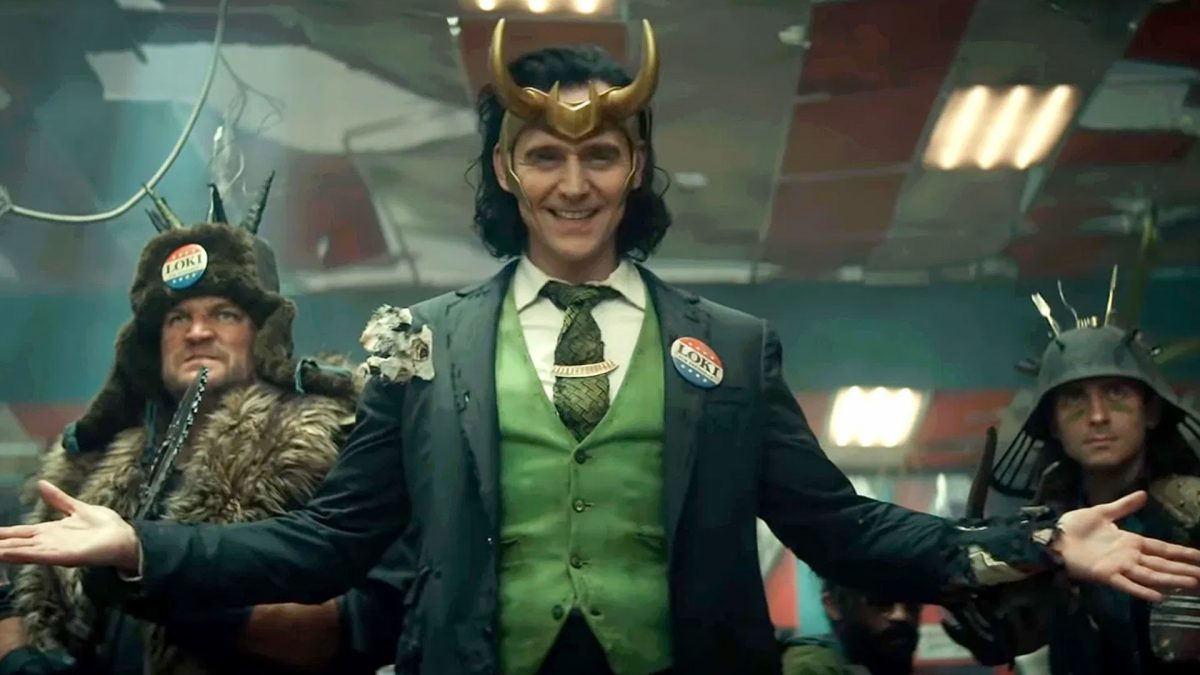Every culture needs a god of mischief. For many Native Americans, it was Coyote. In West Africa, it was Anansi. For the Norse, it was Loki.
Most trickster gods have no motivation beyond spreading chaos. They are, as they say on the internet, in it for the lulz. Loki was a little different. He had an agenda. To prevent him from seizing power, the gods of Valhalla imprisoned him — order symbolically controlling chaos. But one day, he will escape his bounds, and bring about ragnarok, the twilight of the gods, and the destruction of creation. Chaos, in other words, will ultimately win.
When Stan Lee introduced a superhero based on the Norse god Thor, making a version of Loki to be his arch-enemy was a no-brainer. Played by Tom Hiddleston in the Marvel Cinematic Universe, this is the version most people know. And now, to feed the gaping maw of streaming content of Disney+, Loki the villain has his own series.
Loki begins, as all things must, with Avengers: Endgame. During the hopelessly convoluted time travel plot/MCU clip show the Avengers concocted to reverse Thanos’ snap heard ‘round the universe, they traveled back to the events of the first Avengers film, where a chaotic mix-up briefly left Loki in possession of the MacGuffin de jour, the cosmically powerful Tesseract. But when he tries to teleport away from the fracas to use his new magical artifact to take over Asgard, he finds himself instead in the clutches of a mysteriously powerful organization called the Time Variance Authority (TVA). Instead of producing plentiful, cheap, low-carbon power from nuclear, hydroelectric, and solar, like the TVA we all know and tolerate should be doing, this TVA is tasked with keeping the multiverse simple and understandable by stamping out variations from the One Sacred Timeline. Putting a powerful magic item in the hands of a trickster god certainly qualifies as a disruptive event.
Loki is used to throwing his magical weight around, but the TVA’s privileged place in the multiverse means it makes its own rules. Magic doesn’t work, but time travel sure does, and they weaponize it to neutralize Loki. Existing outside of time, they’ve seen it all before, and will see it all again.
In the pilot, much is made of the TVA’s ’70s retro aesthetic. Instead of charismatic gods and heroes, they’re a bunch of bureaucrats doing a job. When Loki appears before Judge Ravona Renslayer (Gugu Mbatha-Raw), she is on the road to sentencing him to whatever the multiverse equivalent of the death penalty is until Special Agent Mobius (Owen Wilson) intervenes. He’s hunting a powerful variant force threatening to tear the multiverse a new charged vacuum emboitment, and it takes a trickster to catch a trickster.
Hiddleston’s Loki has always been one of the best actors in the MCU, providing a little lightness to Thor’s ponderous proceedings, until Taika Waititi let Chris Hemsworth’s comic hair down in Raganarok. Under the direction of Kate Heron, he is predictably charismatic. Wilson unexpectedly turns out to be a great deadpan foil to Hiddleston, and the pair’s chemistry promises to propel Loki to series length.
Written by Rick and Morty alum Michael Waldron, Loki looks to take the MCU squarely into Doctor Who territory of multidimensional madness. If the team can sustain the energy of the pilot, it might be a time trip worth taking.
